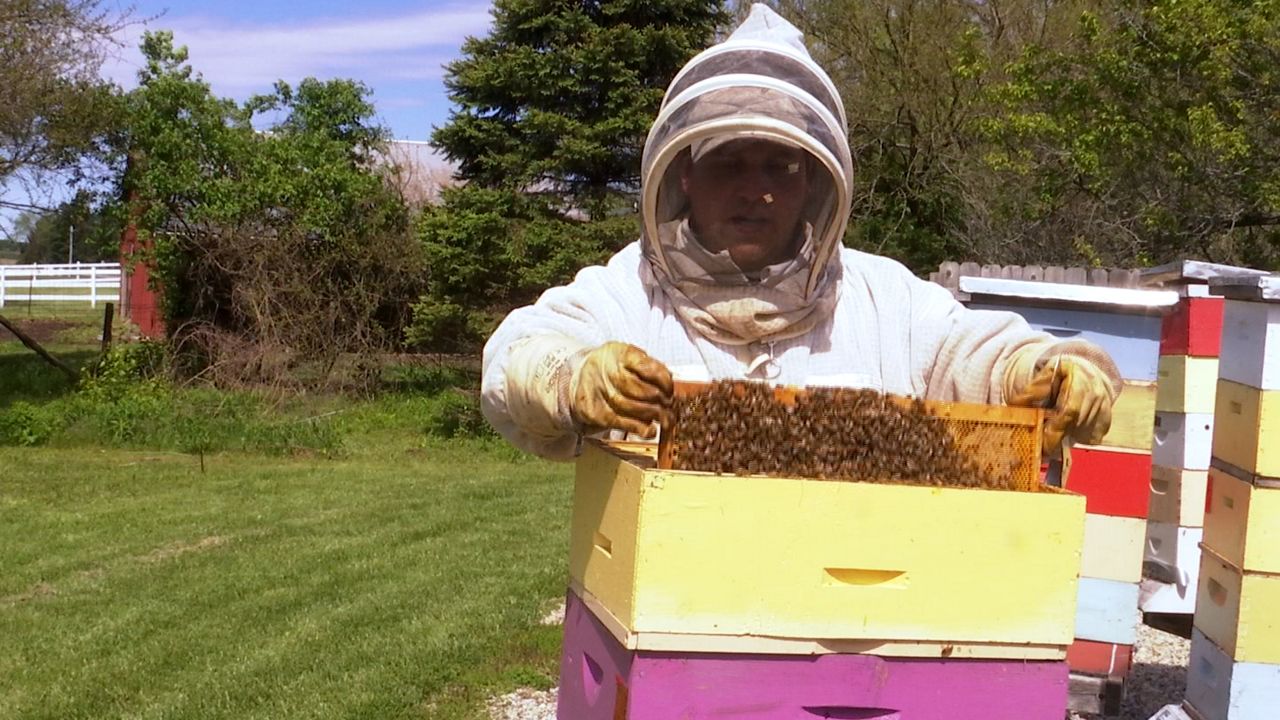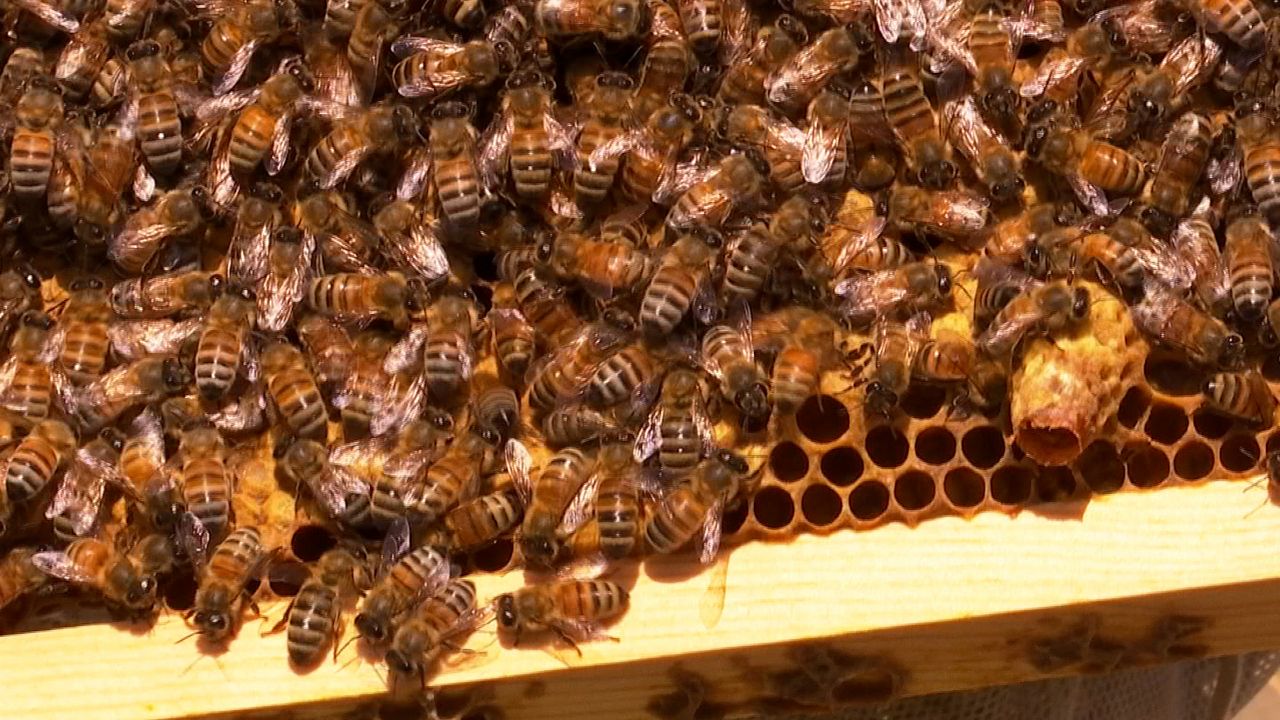DAYTON, Ohio — It’s hard to see through the smoke and behind the mask, but every time Chris Alvarado works on a honey beehive, he’s beaming.
As a conservationist, Alvarado has always had a fascination for the busy bugs and their relationship with the environment. Then three years ago, he started training to become a beekeeper himself and got hooked and wanted to share the buzz.

In January, Alvarado founded his own business, HIVE Noon, a service to help start and maintain as many honey beehives as possible throughout the Dayton area.
“If people are looking for fresh food, this is a great way to produce your own honey,” he said. “If businesses are trying to go greener, it’s a great way doesn’t take up a lot of space.”
According to Alvarado, his clients don’t even need any particular honey bee expertise or even interact with their hive at all. He can install the hives, harvest the honey and keep it healthy.
“I love helping people and I love the environment and this combines both of them,” he said.
Since launching, Alvarado said he’s gotten a steady flow of clients, mostly businesses hoping to add some locally-sourced honey to their reserves.
“I definitely batted around a lot of a lot of different ideas and career paths but once I found this I couldn’t turn away,” he said.
He said he got his training from Tom and Fran Davidson of Golden Queen Honey, which is where he sources much of his bees.

“He’s a mentee, and he’s our best one,” said Tom.
Alvarado said one of the most important aspects of his business is ensuring all the bees come from good beekeepers like the Davidsons.
After all, his mission is about keeping a healthy bee population in the area.
“They are kind of the backbone of the environment,” he said.
Honey bees make proficient pollinators, helping flowers bloom and fruit grow, all while converting that nectar into sweet honey.
“Two [hives] and you can produce anywhere from 10 to 20 gallons worth of honey,” Alvarado said.

Alvarado said he also wants people to understand there’s nothing to fear from his hives.
“They only have two goals, and that is keep making new hives and survive the winter,” he said.
Unfortunately, honey bees are the vulnerable ones. In the 2019-20 season, the Bee Informed Partnership reports U.S. beekeepers lost 44% of their colonies. It used to be a winter problem, but during this season, the summer of 2019 accounted for most of the losses.
“We can’t afford to lose any more bees,” Alvarado said.
That’s where his mission comes in. Smaller clusters of hives with diverse places to pollinate tend to be more sustainable compared to large bee farms so Alvarado’s mission spreads the bees around, while also educating new amateur beekeepers throughout the community on how important the pollinators are.
“You can have as many plants out there as you want but if there is nothing out there to pollinate them they will cease to exist,” he said “And without plants and without animals we won’t exist. This is the last line of defense for humans and for the rest of the planet.”



